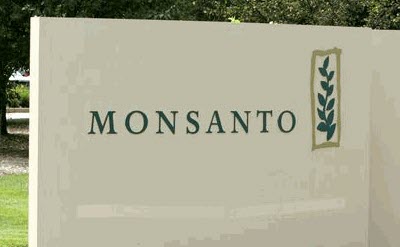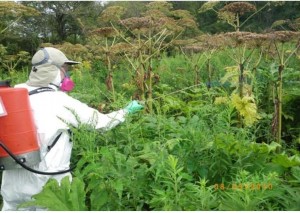After a lengthy legal battle the U.S. Department of Agriculture decided to completely deregulate Monsanto’s genetically engineered sugar beets.
|
|
|||
|
Monsanto’s genetically modified soybeans to be used for cooking oil containing lower levels of saturated fats and higher levels monounsaturated fats were approved last year by U.S. regulators. Yet, while Monsanto prepares for product launch, important safety questions remain unanswered. The FDA took long-overdue steps towards curbing the overuse of antibiotics in farm animals aimed to preserve effectiveness of antibiotics. Unfortunately, the measures remain voluntary and industry compliance remains to be seen. There is a growing demand from consumers to know what is in their food. In response to this demand, sprouting across the nation are bills seeking to label foods containing genetically modified ingredients. U.S. Food and Drug Administration issued an order to restrict unapproved use of cephalosporin class of antibiotics in farm animals. Many, however, are critical of the agency’s decision to regulate a practice that is already in decline. This past November, the U.S. Environmental Protection Agency report cited “severe efficacy issues” with Monsanto’s Bt corn after multiple states reported “unexpected pest damage.” While evidence of the detrimental impact of systemic pesticides mounts, many beekeepers and independent scientists wonder why U.S. regulators have not suspended or banned their use. Internal investigators found significant weaknesses in FDA’s monitoring of State agencies’ food inspections. The finding raises further questions about FDA’s effectiveness in ensuring the safety of the nation’s food supply. Dennis J. Kucinich (D-OH) has once again introduced a bill that would require require the labeling of all foods that contain or are produced with genetically engineered material. It is a counter-balance to another pending legislation that could strip USDA of some of its authority to approve to biotech crops. Is glyphosate a critical tool to control weeds or a cancer-causing health and an environmental menace? The U.S. and Canadian governments plan to re-evaluate the safety of glyphosate. While massive bee die offs have been occurring for more than half a decade, the connection between colony collapse disorder and pesticides, particularly serious concern about systemic pesticides, has been downplayed by the EPA and the industry. Faced with another government agency’s failure to follow the laws, advocate groups had to resort to the courts yet again, making the judicial system the last stopgap for even the most sensible environmental policy. A new army of out-of-control herbicide-resistant weeds has many farmers across agricultural states returning to the very same practices that the chemical “miracle” was supposed to eliminate. Our in depth look at the emerged battleground and solutions. The U.S. House Committee on Agriculture is meeting to “review the causes and consequences of government over-regulation of agriculture biotechnology.” If approved by the FDA, a new bill introduced in California, known as The Consumers Right To Know Act, would require labeling on all genetically engineered salmon sold in California. Recently, Sec. of Agriculture Tom Vilsack compared biotechnology and sustainable agriculture to two sons, for whom he declared equal love. Read on to learn why biotech has in fact been the agency’s favorite “son.” USDA often sides with and promotes industry interests. Its new pilot program allowing biotech developers to prepare their own safety studies or pay for those selected by the agency will only reinforce the image of an agency regulating for the industry. A bill that waters down EPA protections of the Clean Water Act is recommended for consideration by the House as a whole. This is one of several Republican sponsored bills aimed at reducing EPA powers. Conventional and organic farmers and environmental groups filed a lawsuit challenging the USDA’s decision to permit the unrestricted commercial release of genetically engineered alfalfa. A California Appeals Court reversed a lower court’s ruling which would have required the destruction of genetically modified sugar beet seedlings planted in September 2010. The usual and unusual politics surrounding the deregulation of genetically engineered alfalfa. In less than a month, USDA has approved for unrestricted growth GE alfalfa and partially deregulated GE sugar beets. Now, it deregulates GE corn for biofuel production with no environmental impact study of novel proteins it contains. New FDA data shows that almost 80% of all antibiotics sold in 2009 were reserved for animal farming. Part two of our series on antibiotic overuse in healthy farm animals examines the response from the FDA and the proposed legislation. On the heels of the decision to deregulate genetically engineered alfalfa, this Friday USDA announced that it will allow the planting of Monsanto’s “Roundup Ready” GE sugar beets even though the agency has yet to finalize conducting an Environmental Impact Statement. |
|||
|
 |
|||
















